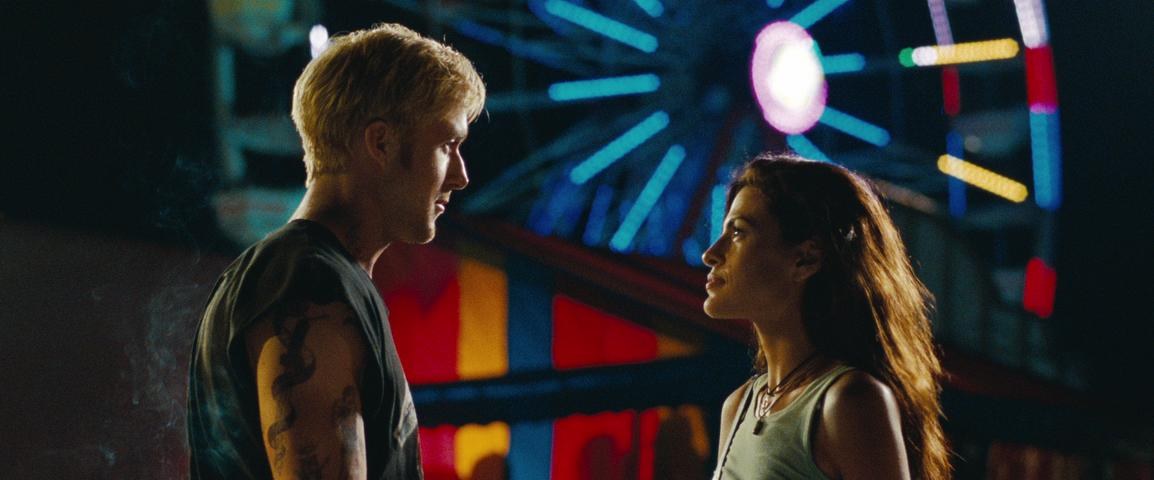The Place Beyond the Pines (2012)

The Place Beyond the Pines (2012) is a sweeping American crime drama that masterfully intertwines themes of family, fate, and redemption. Directed by Derek Cianfrance, who co-wrote the screenplay with Ben Coccio and Darius Marder, the film presents a narrative that spans generations, telling a complex story of choices and consequences. With stunning performances and a thought-provoking plot, the film has become a standout in contemporary American cinema, captivating audiences with its deep emotional resonance and powerful storytelling.
The story of The Place Beyond the Pines begins with a daring motorcycle stuntman named Luke Glanton, played by Ryan Gosling. Luke’s life takes a dramatic turn when he discovers that he has fathered a child with a woman named Romina (Eva Mendes). Feeling a deep sense of responsibility, Luke decides to abandon his dangerous life as a motorcycle daredevil and take up a career as a bank robber in order to provide for his son. His journey of self-discovery and desperation sets off a chain of events that will have lasting impacts on everyone involved.
The film shifts perspectives as it moves from Luke’s story to that of Avery Cross (Bradley Cooper), a young, ambitious police officer who becomes entangled in the aftermath of Luke’s crime spree. After a tense confrontation between Luke and the police, Avery finds himself at the center of a moral dilemma. As Avery rises through the political ranks, his personal and professional life collide, revealing the corruption within the police force. The film explores the themes of justice, integrity, and personal sacrifice as Avery navigates the complexities of his new position and the weight of his choices.

One of the most remarkable aspects of The Place Beyond the Pines is its exploration of generational themes. The film moves beyond the immediate consequences of Luke’s and Avery’s actions to show how their decisions reverberate in the lives of their children. As the film progresses, it becomes clear that the sins and secrets of the past inevitably affect the next generation. This thematic depth adds an emotional layer to the film, making it not just a crime drama, but a reflection on the cycles of fate and the legacies we leave behind.

The cinematography in The Place Beyond the Pines is stunning, with its sweeping shots of the American landscape and intimate close-ups that capture the emotional depth of the characters. The film’s pacing is deliberate, allowing the viewer to fully immerse themselves in the slow unraveling of the characters’ lives. The use of long takes and carefully composed frames adds to the film’s sense of gravity, emphasizing the weight of each decision and the passage of time. This visual style enhances the storytelling, making the film both a visual and emotional experience.

In conclusion, The Place Beyond the Pines is a compelling and emotionally complex film that examines the far-reaching consequences of personal choices. Through its multi-layered narrative, strong performances, and hauntingly beautiful cinematography, the film stands as a powerful meditation on identity, redemption, and the cyclical nature of life. Derek Cianfrance’s direction and the film’s strong script elevate it into a modern crime epic, making it an unforgettable cinematic experience that resonates long after the credits roll.











